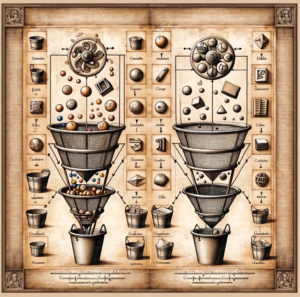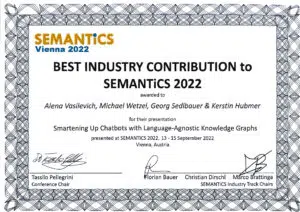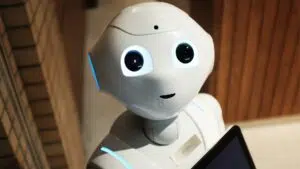In the dynamic landscape of a globally dispersed equipment manufacturer the challenges faced by the service helpdesk are emblematic. Imagine the scenario: a web of sites in multiple countries, a customer base spanning the globe, and a service helpdesk submerged in repetitive work across various languages. Vital information, like support tickets, languishes in poorly indexed databases, creating a reality where links between similar issues answered in different languages or phrased slightly differently cannot be made.
The Multilingual Conundrum
Maintaining a large-scale index under such conditions is no small feat. Continuous updates and refinements are essential to keep the data accurate and relevant, especially when information is scattered across multiple languages. This complexity risks locking valuable information within language silos, hindering the efficiency of the service helpdesk and, consequently, the entire organization.
The Solution: M-RAG
RAG is a very powerful way of using Generative AI. A Large Language Model (LLM) is dynamically prompted with the results of a previous retrieval action. The matching context makes sure the answer is relevant, uses the corporate lingo, prevents hallucination, and even allows to insert links to documentation or spare part ordering. However, the retrieval part is language dependent. Only by deploying a multilingual knowledge graph, RAG becomes a language-agnostic M-RAG solution.
The innovative approach of Multilingual Retrieval Augmented Generation (M-RAG) overcomes traditional boundaries by not only retrieving existing information cross-language but also augmenting it through generative models. To implement M-RAG successfully language-agnostic retrieval supported by knowledge graphs is the crucial piece in the architecture.

Symphony of Knowledge Graphs and Generative AI
- Multilingual Knowledge System: At the core of the solution is a multilingual knowledge system (MKS) a fusion of knowledge graphs and multilingual terminology. This system breaks down language barriers, creating a unified repository that spans across countries and languages. It ensures consistency and accessibility, eliminating the language silo predicament.
- GenAI Integration: Complementing the MKS is the integration of GenAI, such as ChatGPT. This powerful language model acts as a conversational interface, facilitating seamless interactions between users and the wealth of multilingual information stored in the knowledge system. Users can now engage in natural language conversations to retrieve information and receive contextually relevant responses.
Benefits of M-RAG
- Efficiency overhaul: Language barriers are dismantled, leading to a significant overhaul in the efficiency of the service helpdesk. Repetitive work across multiple countries and languages is minimized, allowing teams to focus on more complex tasks.
- Consistency across languages: The interconnected knowledge graphs ensure that information remains consistent, irrespective of the language it originated in. This consistency not only reduces redundancy but also enhances the overall quality of customer support.
- Future-proofing global operations: M-RAG, embedded within a multilingual knowledge system, doesn’t just solve immediate challenges; it also future-proofs global operations. The system is adaptive, capable of evolving alongside linguistic and operational changes, ensuring longevity and relevance.
With M-RAG global customer support becomes an efficient and unified experience.
Global Excellence with M-RAG
In the tale of the global equipment manufacturer the integration of Multilingual Retrieval Augmented Generation supported by knowledge graphs and ChatGPT emerges as a transformative solution. It goes beyond the limitations of traditional multilingual information retrieval, fostering a new era where language barriers are broken, information is dynamic and contextually relevant, and global customer support becomes an efficient and unified experience. M-RAG is not just a solution; it’s a paradigm shift in how organizations navigate the complexities of a multilingual and interconnected world.


